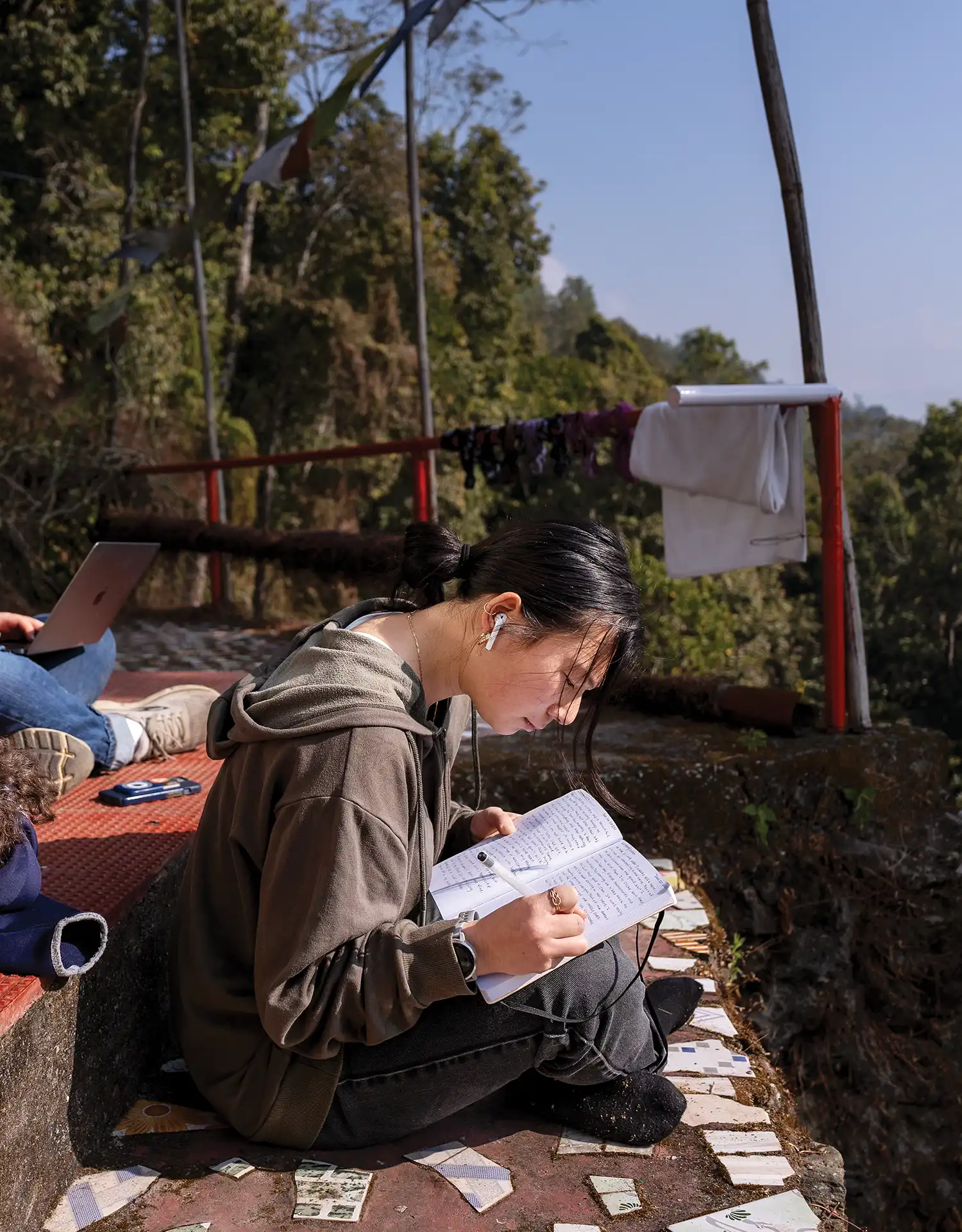
Journaling and time for personal reflection were part of the daily routines.
The Origin Story of the India Jan Plan
Three years later the first group of Colby students went to the school to teach music to local children.
“Going there was something incredible,” Nuss said. “It’s a huge part of how a number of us now think about the world and engage with the world. You can’t do that from a distance. You have to live differently, and it leaves you thinking differently. You can’t explain it, but there is magic there, definitely.”
A few years later, Roy, then going solo, changed things up. He moved the program to another location and shifted its focus to exploring questions about the environment, rural culture, people, and sustainable systems.
In 2015, the Jan Plan course returned to Kalimpong, this time through a partnership with Himalayan Gap, run by the husband-and-wife team Rajiv Lochan and Anu Radha Singh. The couple invite students and teachers to stay at their small farm, where they provide simple, comfortable accommodations, delicious meals, and comprehensive cultural immersion that includes a homestay with local families and more.
As the immersive-learning course developed, Roy and the students began engaging in questions about climate change and its impact on the Himalayan foothills. They met with local environmentalists, writers, journalists, and social activists, and participated in service-learning projects such as spinning plastic waste into ropes for use on farms. Always, they read and discussed fiction based in the region, including the Booker Prize-winning novel The Inheritance of Loss, by Kiran Desai.
Roy is now focused on writing historical fiction, but before his retirement, he invited Sarah Braunstein and her partner, the writer Brian Shuff, to shadow him in India. “I knew when I left in 2020 that Sarah and Brian were very enthusiastic about the future of the program,” said Roy. He continues to contribute to the program, this year guiding students on a tour of the crumbling colonial mansion that is the setting for The Inheritance of Loss.
The focus on immersive learning and fostering genuine connections among people is the program’s strength, according to Radha Singh. Making connections is the best way for Western students lacking familiarity with the developing world to see important, different perspectives on resources like water, energy, food, and community.